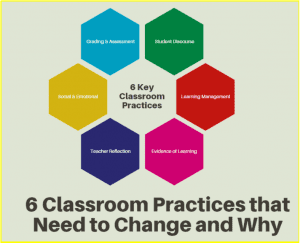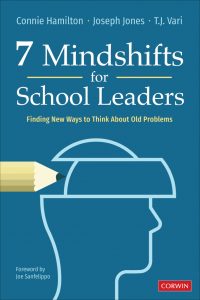
302 Thoughts Fireside Chat: Bad Boss Behaviors That You Can’t Afford to Possess
The challenge of leadership is to be strong but not rude; be kind, but not weak; be bold, but not a bully; be humble, but not timid; be proud, but not arrogant; have humor, but without folly. ~ Jim Rohn
Being an effective leader is far from easy. In fact, good leaders recognize that every day is an opportunity for either excellence or average performance. With so many factors at play each day, superior leaders realize that their behaviors have to be superior and fully aligned to high leverage leadership strategies. Otherwise, we fall prey to poor leadership and management behaviors.
This month, we featured the opposite of what great leaders do, so people would know what to avoid doing. Typically, you won’t find an explicit list like this in school leadership training seminars or classes, but our goal is to provide content for leaders who are striving to improve. Below are our five bad boss behaviors, and for this 302 Thoughts we take a deep dive into two of them.

#1 Micromanaging Your Team: Empowering leaders assign work and then follow up
#2 Withholding Information from Others: Communicate it right away
#3 Stealing Great Ideas: Give credit to innovative thinking, out-of-the-box idea sharing, and risk-taking
#4 Taking Credit for Supports or Success: Reduce “I” from your vocabulary and begin saying “we” more often
#5 Using Relationships to Leverage Power: Leaders must have people around them who can be honest and truthful
In our live recording, Joe tackled bad boss behavior number two, which is withholding information from others. The antidote to this action is to communicate timely and put in structures and systems that create communication opportunities. We need systems in place because this bad behavior can be done consciously and subconsciously. At its worst, withholding information is used to coerce and manipulate situations. Even when it is done inadvertently, it can create a toxic culture or information hoarding.
When conducting school leadership training, we often tie our school research to businesses and industry. This works because companies have a financial bottom line and can estimate losses and gains more concretely than schools and districts. What we find in companies where communication is poor is that an “ineffective knowledge sharing culture…can cost large U.S. firms up to $47 million in lost productivity annually. If that’s true for businesses, think of the devastating impact this has on schools and the students who are supposed to be learning in them.
The second bad boss behavior we explored in this episode was stealing great ideas. We cannot express this enough, but give credit where credit is due. It’s an old adage and holds true for leaders. This is often a symptom of withholding information that erodes trust and self-worth. Great leaders know to give credit for actions and outcome as well as words and ideas.
We love the funny but all-too-true FedEx commercial where the boss repeats the exact same suggestion from one of his employees and the rest of the team, originally silent, loves it when the boss suggests it. Despite the commercial being comical, in reality this behavior stings. It not only subjugates the employee, it creates a pure power vacuum that will limit collaboration and performance thinking.

During our 302 Thoughts we love to suggest a few tools that leaders can use immediately. To improve the timeliness of communication, leaders can use Voxer. This walkie talkie app creates a clear line of communication for teams. This tool is great when information is needed in real time. We urge any team that uses the app to build norms so it is used properly, but the pros of using this tool certainly outweigh the cons.
Another basic item discussed was TheSchoolHouse302 Specific Praise Recognition Card. These cards will be available soon, but here is a sample. Praise is too often underwhelming and these cards are equipped with praise prompts to ensure you deliver an effective praise message.

Our 302 Thoughts are monthly free live podcast recordings that help leaders to lead better and grow faster. It’s like school leadership training without having to leave the comfort of your office or home. We hope you’ll join us next month. Look for the dates in our newsletter.
Let us know if there’s a topic you want us to cover by leaving a comment below or by contacting us at [email protected]. And don’t miss our leadership newsletter every week by subscribing on the site.
We can’t wait to hear from you.
This episode was brought to you by GhostBed, a family-owned business of sleep experts with 20+ years of experience. With 30K+ 5-star reviews, you can’t go wrong with GhostBed. Their mattresses are handcrafted, and they come with a 101-night-at-home-sleep trial. For a limited time, you can get 30% by using our code — SH302 — at checkout. And, even if you tell someone about GhostBed, you can earn a $100 referral reward. Go to Ghostbed.com today and use SH302 at checkout.








 7 Mindshifts for School Leaders: Finding New Ways to Think About Old Problems.
7 Mindshifts for School Leaders: Finding New Ways to Think About Old Problems. 


